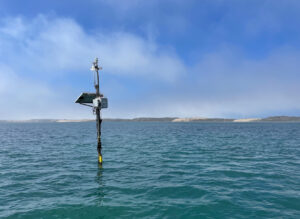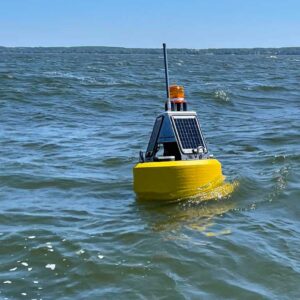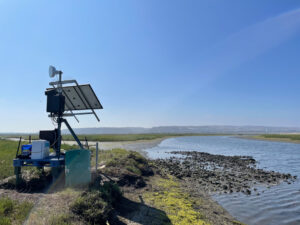Global Water GL500-2-1 Data Logger
Features
- Rugged and easy to use
- Records over 81,000 readings
- Accepts any 4-20 mA signal
- Free ground shipping
- Expedited repair and warranty service
- Lifetime technical support
- More
Overview
The Global Water GL500-2-1 Data Logger features two analog channels and one pulse channel for recording data. Start and stop alarm times can be programmed to synchronize multiple loggers, delay sampling until a preset time, or limit the number of recordings during a day. The GL500-2-1 includes Global Logger II Windows software, which allows for easy setup, calibration, upload, and transfer to a spreadsheet program. The data logger records over 81,000 readings and has four unique recording options:
- Fast (10 samples per second)
- Programmable interval (1 second to multiple years)
- Logarithmic
- Exception
Calibration
The Global Water GL500-2-1 can monitor two 4-20mA sensors and features a scalable digital input that accepts switch closure signals and pulses from various external devices. The logger provides switched power to the sensors based on the programmable sample interval and sensor warm-up time settings. Two- and three-wire sensors can be quickly connected to the datalogger’s internal terminal strip and calibrated via the included Global Logger II software.
Note: 64-bit operating systems are not currently supported.
- (1) GL500U-2-1 Data Logger
- (1) USB Cable, Type A to B
- (1) Global Logger Interface Software CD
- (1) Operations Manual
In The News
Cal Poly, San Luis Obispo Manages Monitoring Efforts in Morro Bay
California Polytechnic State University, San Luis Obispo (Cal Poly, SLO), has been monitoring Morro Bay for decades, and while the monitoring program has changed over the years, the dedication to monitoring the bay has remained the same. The project started in 2006 as a Packard Foundation-funded initiative to monitor water quality flowing in and out of Morro Bay. The goal at the time was to use the data collected to develop and inform an ecosystem-based management plan in collaboration with the Morro Bay National Estuary Program (MBNEP). Since the estuary was the focus at the time, researchers were monitoring water flowing into the estuary from Chorro Creek and Los Osos Creek.
Read MoreGreen Water in Green Bay: Using Data Buoys to Monitor the Southern Bay
While the bay of Green Bay has been referred to as the largest freshwater “estuary” in the world, the watershed hosts intensive agriculture and contributes one-third of Lake Michigan’s total phosphorus load. The Fox River flows into the bay, carrying excess nutrients largely the result of non-point source runoff from the watershed. With a history of deterioration extending well into the last century, the bay ecosystem suffered significant declines in water quality. This, in turn, stimulated major clean-up and ongoing restoration efforts to improve water quality. Tracking these changes is an important aspect of ecosystem management.
Read MoreCross-Border Sewage Contaminated Flows: Monitoring the Tijuana River
The Tijuana River runs across the US-Mexico boundary, flowing into and throughout southern California, carrying with it nutrients and contaminants throughout the estuary. In recent decades, the flows have been heavily polluted with untreated sewage from the City of Tijuana. The wastewater enters the greater Tijuana River estuary, impacting coastal communities and disrupting the natural environment. In order to better understand these cross-border flows, researchers out of San Diego University sought to monitor the waterway test the capabilities of in-situ sensors to measure the contaminated water. Natalie Mladenov and Trent Biggs were two of the researchers involved in the project, deploying a real-time monitoring system in May of 2021.
Read More






